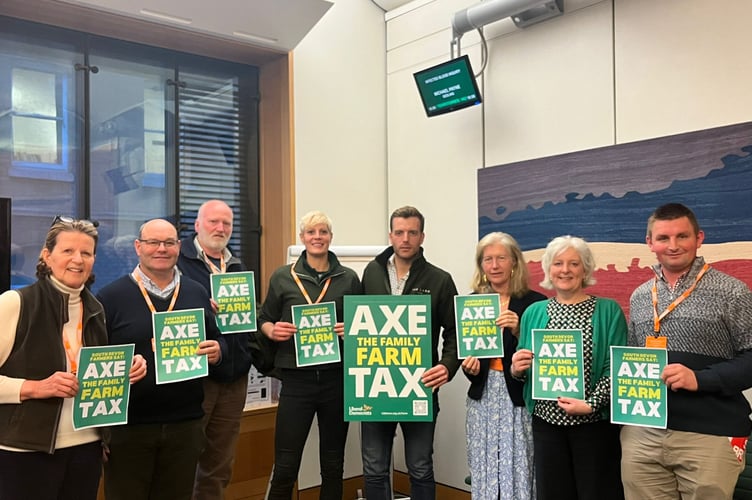The war of words between the government and farmers over controversial inheritance tax (IHT) plans intensified after two local MPs stated their opposition to the proposed changes.
From April 2026, a single farm owner with inherited agricultural assets worth more than £1m will be liable to a 20 per cent tax bill.
Married couples or those in a civil partnership with farms worth up to £3m are exempt as they can each claim £1m tax-free in addition to a family home worth up to £1m.
The standard IHT rate for most people is 40 per cent, meaning they have tax exemptions only up to £500,000. For farmers, the current figure is up to £1.5m per person.
According to the Treasury, about a quarter of farms - about 500 a year - will be affected by the new ‘family farm tax’, but the Country Land and Business Association (CLA), which represents rural landowners, said the tax will impact on a third of all farms, totalling 70,000 over future years.
South Devon MP Caroline Voaden urged the government to drop its plans after meeting with local farmers, saying the tax has raised concerns for all 797 farm owners in the area.
“They recognise not only the risk it poses to our food security but the drastic changes it could make to farming life as we know it. After spending 14 years being let down by successive Conservative governments, farmers now face a Labour government that doesn’t understand them,” she said.
There are fears that farmers who are losing money or making a small profit will not be able to afford the new tax, particularly as many are already struggling with higher energy costs and the impact of Brexit, which saw an end to EU farm subsidies.
According to government data, 30 per cent of farms either made no profit or reported a loss in 2023, while 25 per cent made less than £25,000.
Conservative MP Rebecca Smith, for South West Devon, described the tax changes as “cruel”.
“The Chancellor (Rachel Reeves) must sit down with farmers, as she was quick to do with public sector trade unions, and find a solution that gives family farms a future,” she said, adding that the policy “threatens to damage the UK's food security" at a time of global insecurity.
Last week, DCC issued a statement, saying it was “set to demand” the withdrawal of the tax.
Ruling councillor Lois Samuel, who tabled the motion, said the tax is “an assault” on thousands of farmers, claiming it will leave the average farming family with a tax bill of at least £240,000 and force many to sell some of their land or close altogether.
She also warned that it will pave the way for corporate ownership, hinting at last week’s meeting between PM Sir Keir Starmer and Larry Fink, the head of the world’s largest asset manager, BlackRock.
“Selling off land or closing farms will put our national food independence at risk, at a time when global stability is already fragile,” she said.
Annette Hunt, director of Devon cider maker Hunts Cider, said the tax will make it “hugely difficult” for farm businesses to carry on.
She said: “Farmers just don't have it in their cash flow to be able to pay the huge tax bills that they're going to be facing. There are very few farmers that won't be affected just because of the value of the land, and if you don't have the land, you can't produce the food.”




